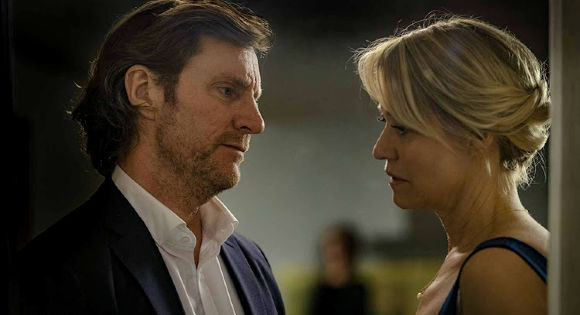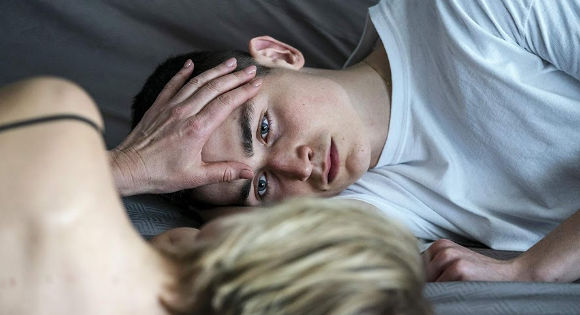Anne (Trine Dyrholm) is a very successful lawyer who specializes in teen abuse cases. Her husband Peter (Magnus Krepper) is a doctor. They have twin girls who are looked after by a nanny. Sex between this middle-aged couple has waned over the years. He is put off and irritated by Anne's dominance and her need to win every argument. She believes that she is entitled at this drab stage of life — the transition from middle age to elderhood — to some sexual adventure.

Her desires flare up when Gustav (Gustav Lindh), Peter's estranged son from his first marriage, comes to stay with them. The boy, too, is feeling the pains of a transition after being kicked out of school and his mother's home in Sweden. He is a quiet and intense youth with a brash sexual presence.
Anne and Gustav begin an erotic dance toward one another when he walks out of the shower draped only in a towel slung low around his waist. Later, while swimming and splashing one another in a lovely lake, play draws them closer. He is glad when she complies with his request to adorn her body with a tattoo. But later, after their intimacy has only been the quiet rusting of their mutual desires, she passionately kisses him on the lips, opening the door to some torrid sex. It seems to be just what Anne has been looking for and not finding in her stodgy marriage.

Queen of Hearts is a thought-provoking drama about the anger and destruction that can be caused by what Robert A. Johnson, a Jungian analyst. calls "the wounded feeling function." In the closing parts of this drama, director May el-Toukhy masterfully unspools the results of Anne's adultery and the even more distressing outcome which stems from her disregard of genuine emotions.
Johnson measures the magnitude of her malaise:
"To lose one's feeling function is to lose one of the most precious human faculties, perhaps the one that makes us most human."
